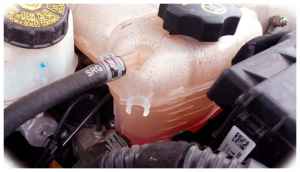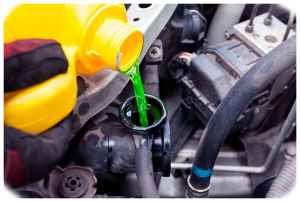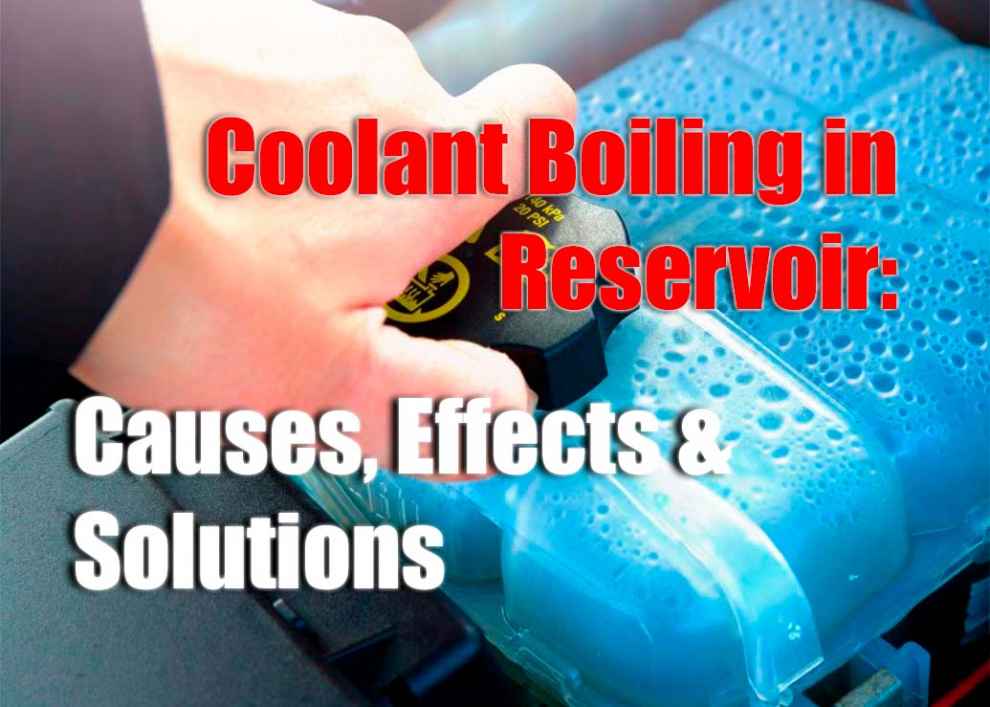Coolant is a liquid solution composed of water and special chemicals designed to regulate the temperature of engines. It works by absorbing heat from the engine, dispersing it through cooling fins or a radiator, and then recirculating coolant back into the engine. The purpose of coolant in vehicle engines is to maintain a constant operating temperature for optimal performance and avoid overheating during operation.
Several types of coolants are available that vary in their specific chemical makeup for different applications. Generally speaking, most coolants are made from ethylene glycol or propylene glycol base with additional corrosion inhibitors, lubricants, pH adjusters, buffering agents and other additives. Each coolant type has unique properties that make it suitable for different kinds of vehicles. For example, some types are better suited for colder climates, while others are designed to resist overheating in hot climates.
Causes of Coolant Boiling in the Reservoir
Several causes can lead to boiling coolant in reservoir tanks, which vary depending on the type and condition of your vehicle’s cooling system. The most common causes are:

Faulty Radiator or Cap – A faulty radiator or worn cap can allow too much pressure to build up in the cooling system, leading to boiling coolant in the reservoir tank.
Clogged Cooling System – A clogged cooling system cannot circulate coolant as efficiently as needed, which can cause it to overheat and boil in the reservoir tank.
Incorrect Coolant Mixture – Using an incorrect mixture of water and coolant chemicals can lead to boiling when it reaches its maximum temperature threshold.
Leaks in the Cooling System – If there is a leak somewhere in your vehicle’s cooling system, it won’t be able to maintain proper pressure levels, which may cause the boiling of coolant in the reservoir tank.
The effects of having boiling coolant in your reservoir tank can range from minor inconveniences, such as reduced fuel efficiency, increased emissions and potential safety hazards, to more serious issues, such as engine damage or wear. It is important to have any boiling coolant issues diagnosed and addressed as soon as possible in order to avoid further damage.
Preventive Measures and Solutions
The first step in diagnosing a boiling coolant issue is to visually inspect your vehicle’s cooling system for any signs of leaks, blockages or other faults that could be causing the problem. After that, you may need to perform pressure testing and temperature monitoring of the system to identify the cause accurately.
There are several preventive measures you can take in order to reduce the chances of having boiling coolant issues in your vehicle’s reservoir tank:

Proper Coolant Selection and Mixture – Choosing the right type of coolant for your specific make/model is essential for its performance and longevity. Use the correct coolant mixture for your vehicle as specified in the manufacturer’s manual.
Monitoring Engine Temperature – Regularly monitoring your engine’s temperature can help you identify any problems before they become more serious issues. This includes checking the temperature gauge on your dashboard and using an infrared thermometer to measure temperatures directly on components in the engine bay.
Addressing Leaks and Blockages – If there are any leaks or blockages in your vehicle’s cooling system, it is important to address them immediately to avoid boiling coolant issues.
Conclusion
Having boiling coolant in your reservoir tank can pose various risks to your vehicle’s engine, emissions and overall performance. It is important to take preventive measures such as regular maintenance and proper coolant selection/mixture to avoid problems with boiling coolant. If you experience any issues with boiling, it is best to have them diagnosed and addressed by a qualified technician as soon as possible to prevent further damage.

Add Comment